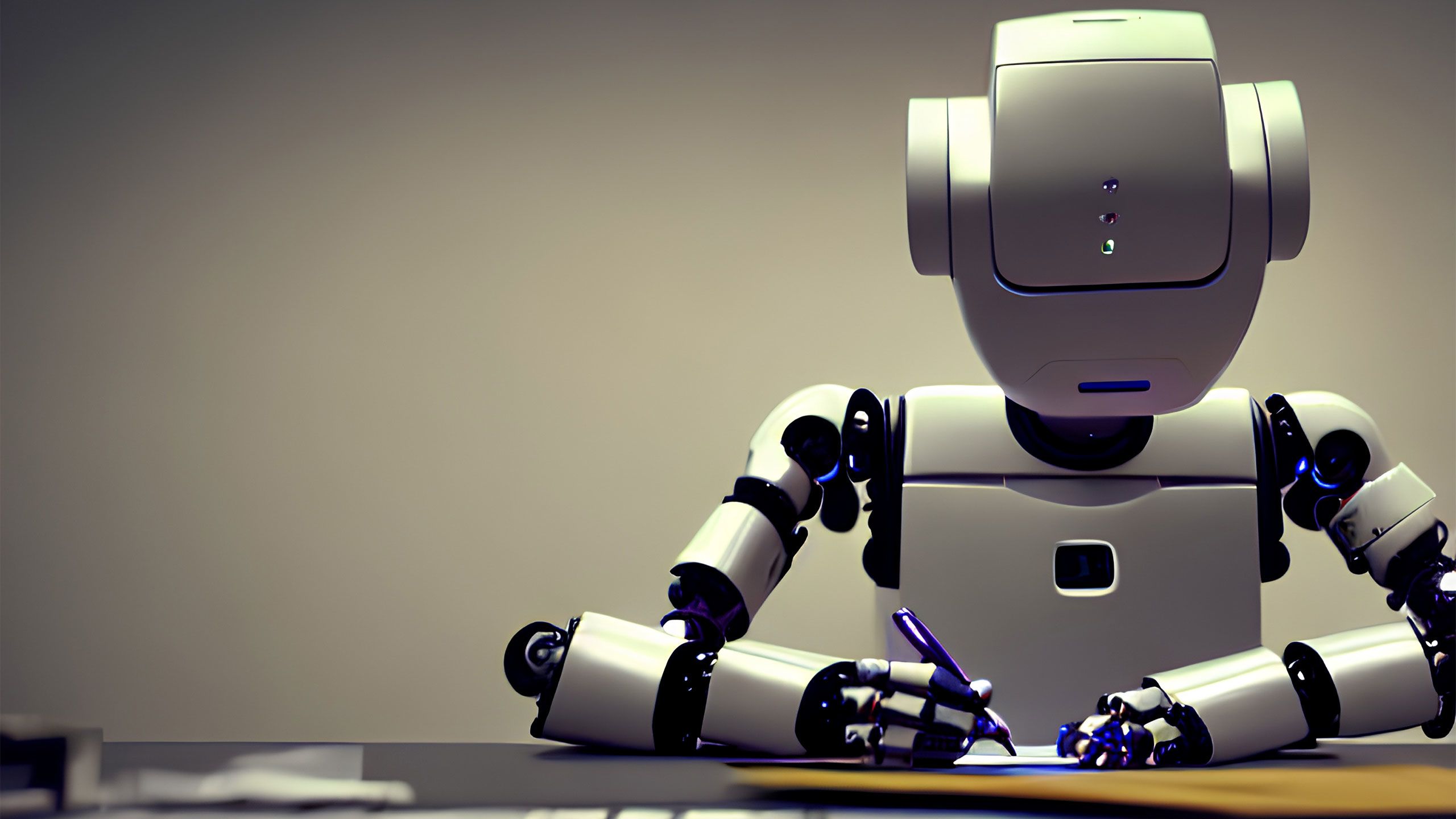Finding the
Right Words
Digital media researcher discusses the complex implications of ChatGPT

When it comes to reading, writing, and composition, will ChatGPT get the last word over humans? When calculators became commonplace nearly 50 years ago, parents and teachers raised concerns about their potentially harmful effects on mathematics education. Now, the increasingly popular chatbot program has incited similar fears that students will be able to cut corners when writing academic papers or taking tests. Simply ask ChatGPT a question, and its artificial intelligence combs through vast amounts of data from the internet to quickly produce a sophisticated response.
Rutgers University in Camden Associate Professor of English James Brown, who serves as director of the university's Digital Studies Center and researches how new technologies impact academics, takes a more nuanced view. He believes ChatGPT and other AI can be used in ways that enhance the educational experience of students and teachers but will also come with drawbacks. He believes their true impact may not be understood for years to come.
“The fact that we’ve all gone to the question of cheating and spend so much energy on it says a lot about how we think about teaching and learning,” said Brown. “I think there are a million other ways to be thinking of these new tools, which are just going to keep emerging.”
In recent years, many industries have employed ChatGPT or other AI to perform tasks and produce written content. CNET, a popular tech news outlet, recently started using AI to draft articles. As far back as 2016, The Washington Post used a “robot reporter” powered by a software called Heliograf to produce 850 pieces of written content over the course of a year.
While AI-generated content is not perfect, it can provide a solid starting point for writers and editors looking to budget their time more efficiently. Humans still need to review the text that bots offer; a chatbot may contradict itself or provide information that is plagiarized, factually incorrect, or contains grammatical errors. While some argue that AI is a win for journalists and writers—allowing them to offload simple assignments in favor of deeper, more meaningful work—others fear it will eventually be able to replace human wordsmiths altogether.
"I don’t want to come off as overly optimistic, but other responses have been entirely too pessimistic," Brown said. "We get into trouble when we think of these kinds of tools as replacing the human writer. We collaborate with them in the process of writing, much like we do with spellcheck tools or AutoComplete. We are in conversation with them, prompting them to generate things, editing the text, and writing alongside them. Anyone who thinks ChatGPT is going to replace the writer will be disappointed, unless we’re talking about the most simplistic writing tasks."
Brown believes ChatGPT can be a useful tool in the classroom, and like the calculator, may soon be commonly used in schools for purposes well beyond its current capabilities. The key, he said, is that humans working in tandem with AI will always be able to produce better writing than ChatGPT or other software could produce on their own.
“Some of its abilities are pretty surprising and staggering, in particular, if you learn what it does well, like writing summaries or computer code,” Brown said. “If AI tools are used with human guidance, there’s no limit to their future applications.”


James Brown, associate professor of English and director of the Digital Studies Center
James Brown, associate professor of English and director of the Digital Studies Center


Design: Beatris Santos
